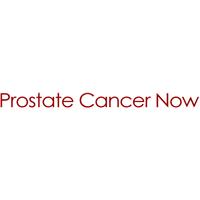London: Victims of breast cancer face an agonising three-year wait on the UK’s National Health Srvice for a drug hailed as the biggest breakthrough in 30 years. Doctors say Arimidex could save or prolong the lives of thousands of women.
It dramatically reduces the chances of the cancer spreading and cuts the risk of severe side- effects. But a decision on approving the drug is not due until March 2007.
Between now and then, the disease will claim the lives of nearly 30,000 women. At least 10,000 new patients a year would be suitable for Arimidex while thousands of others could switch treatments.
The annual bill for each woman’s treatment would be £800, compared to about £70 for tamoxifen, the current standard treatment.
After stunning trial results were unveiled yesterday, doctors want Arimidex to become the first-line therapy for early breast cancer in postmenopausal women.
But NHS patients will have to wait – unless they go private and can find a specialist prepared to prescribe the drug.
At the moment, it is only allowed for women who cannot tolerate tamoxifen and for advanced cancer cases.
Drug regulatory officials are considering whether to license Arimidex for initial therapy.
But even then, it still has to be approved by the National Institute for Clinical Excellence before being prescribed widely.
Its decision is not due before March 2007, leaving thousands of women uncertain if they are getting the best treatment.
Professor Jeffrey Tobias, one of the trial investigators, said: ‘It is clear that if Arimidex prevents the disease recurring at distant sites in the body, there is a good chance the cancer won’t come back at all.
‘More women would be surviving for longer periods, free of disease and possibly cured.’
Dr Tobias, Professor of Cancer Medicine at University College and Middlesex School of Medicine, said breast cancer therapy was at a turning point.
‘For the first time, we have a more effective and safer treatment than tamoxifen,’ he said.
‘It’s very unusual for something to emerge that is much more effective than the standard therapy.’
Although tamoxifen was cheaper, Arimidex was ‘good value for money’, he added.
Data from the biggest study of its kind showed that women on the new drug have a 10 per cent higher survival rate after five years of treatment.
It cuts the chances of breast cancer recurring by 26 per cent – over and above the 50 per cent reduction provided by tamoxifen.
Women also run less risk of the cancer spreading to distant parts of the body.
Serious side-effects, such as endometrial cancer and bloodclotting disorders, are also significantly lower. Doctors predict Arimidex will become a bigger life-saver than tamoxifen, which is credited with helping more than 20,000 British women survive since its launch in the 1980s.
Early indications suggest the death rate might be cut by a further 13 per cent compared with tamoxifen.
Study leader Anthony Howell, of the Christie Hospital, Manchester, said patients on tamoxifen should be switched to Arimidex at the ‘earliest opportunity’.
Each year, 41,000 women in the UK develop breast cancer – 30,000 of them after the menopause.
A total of 100,000 would be eligible for the new drug.
Arimidex only helps patients after the menopause as it works by shutting down the body’s supply of the female hormone oestrogen.
Professor Jack Cuzick, of Cancer Research UK, which helped fund the study, said: ‘We are very excited by these results.’
Dr Sarah Rawlings, of the charity Breakthrough Breast Cancer, said: ‘Tamoxifen has made a big impact but other treatment like Arimidex could also make a big difference.’
Sue Green, of CancerBACUP, said: ‘Women taking tamoxifen should be assured that the treatment is very effective. Anyone concerned should discuss it with their doctor.
‘We would also urge NICE to assess the data urgently so health professionals are given clear guidance.’
Tamoxifen is cheaper as it has been available in generic form for years.
Arimidex has cost millions to develop and is protected by a patent.
The study results were announced at a conference in the U.S. and on the website of medical journal The Lancet.

